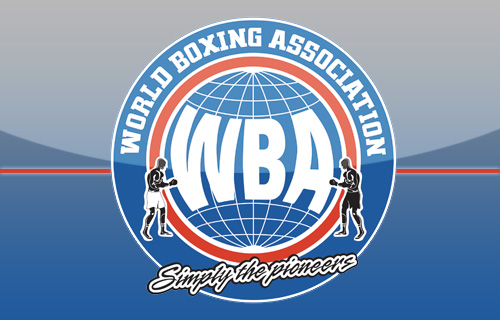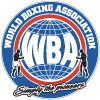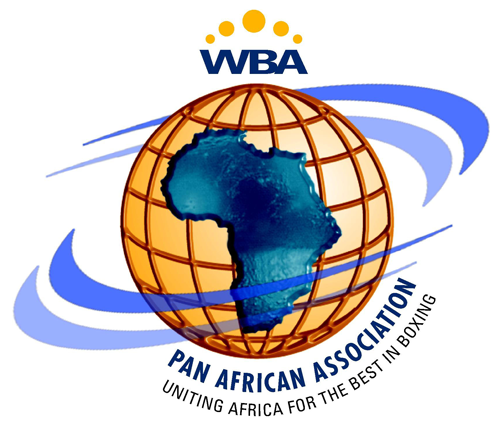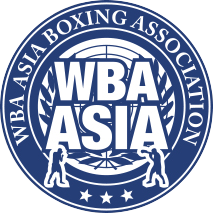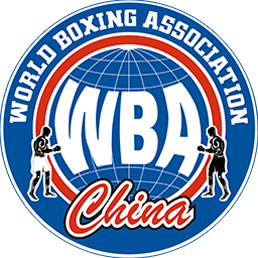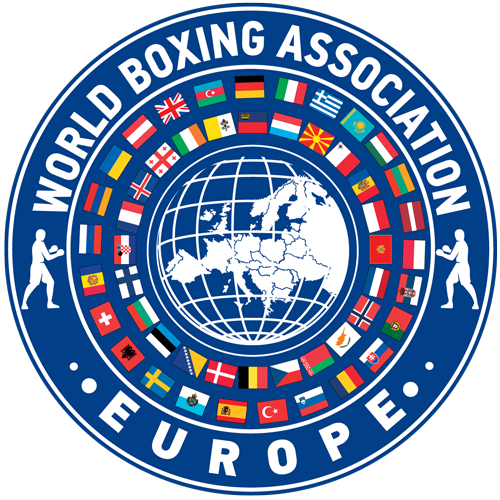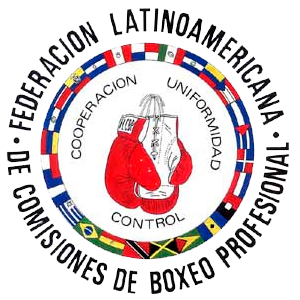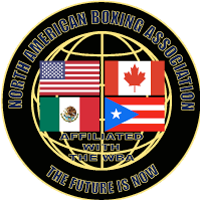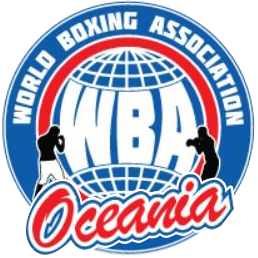
Day One—Get Well Soon
On Monday, December 14, at the Westin Playa Bonita in Panama, the WBA 94th Annual Convention kicked off with a monumental changing of the guard.
The morning meeting opened with humorous clips of boxers and boxing by Charlie Chaplin and others from cinema’s Golden Age. Then things turned serious. WBA Vice President Gilberto Jesus Mendoza read a long, heartfelt letter to the WBA Directorate from his father, longtime WBA President Gilberto Mendoza, discussing his declining health and inability to attend this year’s convention, before shocking those in attendance by resigning as WBA President.
The discussion then turned to the procedural steps toward electing a new president. A proposal was put forward to elect Gilberto Jesus Mendoza to the presidency. The proposal was approved by a majority, and he immediately assumed the presidency of the WBA. With sadness in his voice and heaviness in his heart, Mendoza said that even without his father’s presence, he “will try to take boxing to new levels.” Special guest (president of the WBO) was by his side to support the new president in the difficult weeks ahead.
After the announcement, Mendoza Jr. held a press conference to profess his eagerness to work with other sanctioning bodies and his optimism about boxing’s future. The 44-year-old Mendoza, while admitting to experiencing a “crossroads of sentiments” without his father present, spoke of his desire to carry on his father’s legacy before him while investing his “passion” in the sport for overall betterment of boxing.
“I realized Latin Americans specifically identified a lot with what we at the WBA have offered them,” he told FightNews, “and this sudden illness made me think that this job — which I envisioned as a child, to follow in my father’s footsteps — was important. It’s not easy to think about his illness. Facing this reality is tough, as he is only 72. He is strong, but it’s tough. We’re going to keep up the work we have done and have him advise me, but we want to keep it the same—except I hope to bring new energy and new ideas. I think boxing has to change in certain ways.
“We do not want to harm the international aspect of boxing. That’s an obstacle we face. We want fairness and justice for boxers who come from any country. We want to become bigger with our brand, such as with the training of officials. We have communications among all of the organizations, and everybody tries to make the best decisions, and maintain respect among all of us.
“Perhaps we will [in the future] have no middle titles between super and regular, but I’m not sure about the interim titles yet. The interim belts in certain markets cost less and allow the fighters to grow. But I think things might change, and I have been thinking about it a lot.”
Mendoza also mentioned the format of the WBA convention may change to encourage more discussions and solutions, with board meetings followed by information for judges, physicians and other officials.
Afternoon meetings included reports from representatives from around the world, including Aurelio Fiengo reporting on behalf of Fedelatin and Regional Advisor Stanley Christodolou reporting from South Africa. Christodolou touted the high quality of fights on his continent, even as lingering issues are being addressed. This was followed by reports from Legal Director Robert Mack and a medical committee report from Medical Advisory Director Calvin Inalsingh (recent developments such as Prichard Colon’s recent debilitating injuries prompted discussion of improving the performance of officials, for example). And a discussion of bringing boxing to inmates was met with positivity as well as caution from the group assembled. A motion was made to honor Mendoza Sr. as an emeritus president, which easily passed.
Finally, the evening’s opening ceremony dinner hosted convention attendees, as well as a star-studded audience. Current and former champions Gennady Golovkin, Daniel Jacobs and Miguel Cotto were present, as were past Panamanian greats such as Roberto Duran and Hilario Zapata. An evening of regional music and dance performances was highlighted by an appearance by salsa star Gilberto Santa Rosa.
Day Two—As the World Turns
On Tuesday, the second day of the WBA 94th Annual Convention commenced with a general meeting, opening with a roll call of attendees from around the world. Promoter Gary Shaw applauded Gilberto Mendoza Sr.’s guidance, wisdom, and knowledge, but confessed to looking forward to his son’s newly established leadership and the future of the organization.
The day began with a review of the WBA Convention in Lima, Peru, in 2013, with Legislative Director Carlos Chavez emphasizing the need for evaluating officials’ performances, especially in controversial fights—as well as the also controversial topic of the half-point system for scoring, which would be used only when rounds are extremely close. However, the organization made clear that it was merely considering (not yet implementing) this measure.
The morning meeting otherwise consisted of reviewing the directorate meeting on Monday, including notes on the WBA creed and agenda. Significantly, Gilberto Jesus Mendoza, former First Vice President and now President, has decided to leave his former position vacant for the time being.
After a lunch break, attendees were treated to a guest appearance by Japanese super flyweight champion Kohei Kono, plus video greetings from Wladimir Klitschko (who vowed to recapture his WBA belt) and Nicholas Walters, who expounded upon the life-changing opportunities of winning a title.
Continental Director Aurelio Fiengo and WBA International Coordinator/WBA European Coordinator Mariana Borissova offered reports from their regions, with the latter proposing a WBA Youth title for 2016 (which Mendoza Jr. offered to consider after studying its validity). Continental Director George Martínez reported on the activity of the NABA, after which Mendoza Jr. proposed the appointment of an interregional coordinator as the bridge between the WBA and its regional bodies to improve communications. He recommended Martínez for the position, and the motion was approved.
Ratings Committee Director Miguel Prado discussed rankings and the approximately 255 boxers that are evaluated on a monthly basis by the WBA; he also suggested the WBA manual be updated, as it has not changed in the past 15 years. Mendoza Jr. questioned the need for interim titles but offered that they were based on regional demand—and then questioned the fairness of rankings in boxing in general, since the activity of ranking is “subjective and complex,” while stressing that he wants the ratings to be as fair as possible. However, promoter Sampson Lewkowicz of Sampson Boxing noted that interim titles allow fighters to make more money and become more well-known in the sport. Finally, WBA webmaster Gilberto Echeverria pointed out a new and easier process for the rankings committee (called JAB) had been established which makes information easier to adjust and publish on the Web.
After a short afternoon coffee break, and before the rankings communications commenced, welterweight interim champion David Avanesyan and super featherweight world champion Javier Fortuna made appearances to thank the WBA.
Mendoza Jr. emceed the discussion of rankings, with judges Gustavo Padilla and Prado evaluating the claims of promoters and managers who rallied for higher rankings for their fighters. Rankings discussions included all divisions and took on participants’ opinions, predictions and requests. For example, representatives postulated that mini flyweight Hekkie Budler should move from world champion to super champion status; Yuriorkis Gamboa should re-enter the rankings after his fight this week, as he will return to 130 (after which Fortuna announced he would gladly take on Gamboa); Imam seeks to avenge his upset loss and should thereafter be ranked once more; and up-and-coming talents including Ukranian Oleksandr Usyk and Britain’s Aarron Morgan should enter the rankings, while familiar heavyweight faces like Kubrat Pulev and Dereck Chisora should ascend or re-enter the ratings. In related news, Sampson announced he would be signing #10 super lightweight Alberto Mosquero this week.
That night the convention hosted a high-energy yet casual affair, the Talent Show, held in the Grand room at the Westin Playa Bonita. With a buffet dinner and live music kicking off the festivities, attendees including Ray “Boom Boom” Mancini, Roberto Duran, Jesus Cuellar and Daniel Jacobs enjoyed an evening of live music—including from referee Tony Weeks, who serenaded the audience with his soulful renditions of “Under the Boardwalk” and “In the Still of the Night.” Novelty acts including roving musicians, jugglers and gymnasts added to the festive atmosphere, but the night’s highlight arrived when Duran closed with percussion accompaniment and then vocals with a full salsa band.
The convention will continue Wednesday with a full day of general meetings, followed by a “Retro Night” social event.
Day Three—Judgment Day
Meetings continued Wednesday with discussions between promoters, officials, the media and other attendees to question common yet controversial practices in the sport. The main topics discussed were interim titles, super championships and the like, with some participants proclaiming there are too many titles circulating. However, promoters in attendance, including Gary Shaw and Sampson Lewkowicz, maintained they are necessary for receiving television coverage and selling the fight. Another heated topic was controversial decisions and outcomes, such as when officials make errors in judgment; many questioned what can be done about rectifying errors after the fight ends.
After a lunch break, the judges seminar hosted an in-depth lecture by former HBO unofficial scorer and veteran judge Steve Weisfeld, who believes judges are better trained than ever, but admits that problems occur due to poor use of scoring criteria or lack of focus. He advocated unofficially scoring fights on video to obtain more practice; increasing communication with other judges to discuss different possible scenarios; learning from others’ mistakes; and honing concentration skills. A judge’s behavior on fight day and night can also factor in, so he recommended keeping to a routine, being organized and available, and arriving at ringside in a state of heightened awareness—while ignoring swaying factors such as crowd response, what happened in earlier rounds, or personal issues. His report concluded with replays of 10 rounds from various past fights (all featuring atypical or controversial situations, such as double knockdowns) that were scored by attendees, with explanations and discussions on scoring possibilities.
After WBA President Gilberto Mendoza Jr. voiced his desire to unite all officials—both judges and refs—the attendees took a short coffee break. They returned to a speech by Glenn Feldman, who shared his experience in being selected as one of the three judges for the Pacquiao-Mayweather megafight this year, despite a one-round scoring controversy in Peter Quillin and Andy Lee’s closely contested matchup just weeks before. Feldman stressed the importance of treating every fight equally and fairly, avoiding the hype and expectations in even the most overblown bouts. He closed by thanking Mendoza Jr. for his opportunities, as the veteran judge has overseen 144 title fights in his career.
The final speaker of the day, Matt Podgorski, briefly illustrated the ways to perform scoring on a continuum (close, moderate or decisive for the winning fighter), using the visuals of a weighted scale and odometer, for example, as judges must keep a mental tally of blows landed and effective punching to determine each round’s winner.
Attendees returned in the evening for Retro Night, with a buffet dinner and musical performances. Officials Tony Weeks, Russell Mora and Robert Hoyle performed old-school classics with spirited style and choreographed dance moves, while a local band belted out oldies. A photo booth, complete with outlandish accessories like oversized hats and masks, gave attendees a whimsical photo op (even Daniel Jacobs couldn’t resist), while entertainment from two Elvises (one pint-sized) closed the night’s revelry.
Day Four—Safety First
The fourth day of meetings on Thursday were relatively brief due to the evening’s KO Drugs fight card are Arena Roberto Duran in Panama City, but the morning Medical Seminar was packed with speakers and information that impact the medical aspects of the sport—and hence the health and safety of fighters.
The first speaker, Francisco Pina, delved into the study of isotonic beverages (i.e., sports drinks such as Gatorade), which are used commonly in other sports, like American football. Interestingly, in a study cited by Pina that sought to determine the most demanding sport (taking into consideration endurance, strength, speed, power, agility and more), boxing was given the top ranking. Another study evaluating the nutrition of boxers pointed toward the many unhealthy weight loss practices in the sport, especially dehydration, which poorly affects performance. The WBA rules currently state that only water is allowed to rehydrate during a fight, so Pina questioned whether that guideline should be changed to help protect fighters’ health. Pina also discussed anti-doping tests, proposing that the WBA requires local commissions to provide a list of labs that have been verified for admission of these tests.
Dr. Joseph Estwanik then took the microphone to report on safety equipment and the unfortunate practice of non-boxers (and even non-athletes) being propositioned at short notice for prizefights—as well as the plight of the journeyman, who may have many more losses than wins. He noted that, at times, it is necessary to save these fighters (and nonfighters looking for a quick payday) from themselves by monitoring their ability to be in the ring. Estwanik also spoke about mouthpieces as necessary to protect the jaw, and hence the brain, by acting as a shock absorber. He found that mouthpiece manufacturers may not have research to back up their products’ performance, and that many boxers in his area (North Carolina) arrive to fights with mouthpieces that are malformed, worn out or otherwise insufficient as a means of protection. To remedy these problems, Estwanik suggested mandating inspections of the mouthpiece by ringside physicians during the physicals before the fight.
WBA President Gilberto Jesus Mendoza confirmed that he would like to take a new approach to health and safety, working harder to evaluate scientific approaches and create better guidelines.
Shivana Inalsingh, a holistic healthcare practitioner, discussed the dangerous practice of dramatic weight loss due to day-before weigh-ins, pointing out that losing even 1% to 2% of one’s weight can have a negative effect on physiological function. She suggested sharing information and best practices with other weight-division sports.
After an impromptu appearance by the ebullient favorite son of Panama, Roberto Duran, Medical Advisory Director Calvin Inalsingh stressed that every WBA card should have a certified ringside physician, with standardized protocols and boxer testing. Then, following a short coffee break, Jorge Ramirez (who has penned two books on methodology of sports training) offered a presentation for trainers in attendance. He spoke at length about the mysterious science behind recovery, as boxers have intensified their training, and recommended “active rest” periods for boxers, interspersing their typical rigorous workouts with other leisurely activities such as swimming or basketball. He also fielded several question from the audience on matters including vitamins and isotonic drinks.
Dr. Larry Lovelace, a ringside doctor for 30 years, enumerated the many ill effects of dehydration, including stress on the heart and kidneys, blurry vision, mood swings and a greater risk of brain injury. He also discussed cuts, noting that vision impairment, location and depth are key factors when determining to stop a fight. He implored the audience to log on to ringsidearp.org for health information and courses/testing for ringside physicians; the organization will also host its annual conference next July in Las Vegas.
Dr. Benjamin Molina tackled the topic of breathing, including the anatomy of the respiratory system. Good respiration leads to better concentration and sleep, combats fatigue and controls stress, so he invited an audience member who practices martial arts to demonstrate some different techniques for mindful breathing. Molina also highlighted some critical vitamins for the optimal health of athletes, such as zinc and vitamins A, C and E.
Finally, Dr. Jose Lopez Goicochea was introduced by Mendoza Jr. The president announced that, at the request of his father, Gilberto Mendoza Sr., he would like to add Goicochea to the WBA medical committee, which the latter gladly accepted. His lecture involved the alternative health practice of ozone therapy, which improves cell performance, and the ways in which it can be administered to help athletes.
Finally, Mendoza Jr. called up KO Drugs Coordinator Manuel Landero to honor him for 50 years as part of the WBA directory. He saluted his decades of service and awarded Landero with an etched-glass plaque, offering his “eternal thanks” to the longtime member. A proud Landero accepted the award with thanks and voiced his support of Mendoza Jr.’s new presidency.
Day Five—The Third Man
The final day of the WBA Convention hosted a packed house for the International Officials Seminar. In the morning, attendees discussed the crucial role of the referee, who must have both medical knowledge and a full understanding of the appropriate guidelines. However, even with full understanding of procedures, referees must make split-second decisions—such as to stop a fight or let it continue, which is often a matter of controversy. Fight clips offered examples of bouts that should have been stopped earlier than they were, with notes of symptoms that signal danger.
The tragic occurrence of ring fatalities was discussed by lecture leader and ref Raul Caiz Sr., including David Acevedo’s recent death (the first ever in Nicaragua). A representative from the country voiced grave concern about the incident and noted that the local commission performs testing and monitoring to regulate matters such as extreme weight loss. Directorate advisory member Francisco Pina related the importance of the referee but noted that the fighter’s corner and ringside physicians also have a responsibility to stop fights when necessary.
For example, Panamanian Rockero Alcazar, who had difficulty making weight, fell into a coma after a fight and later passed away. Sometimes, like in this case, nothing during the fight indicated serious injuries, so physicians must perform post-fight examinations and evaluate any warning signs of neurological damage. Other examples shown included Benny “Kid” Paret, who died in his fight versus Emile Griffith; Johnny Owen, who died after facing IBHOF 2016 inductee Lupe Pintor; and Duk-Koo Kim’s death versus Ray “Boom Boom” Mancini (one of the events that spurred the change from 15 to 12 rounds). Even most boxers who are victorious in these contests are never the same, noted Caiz Sr., while other people are also affected deeply—the Mancini-Kim referee and Kim’s mother both committed suicide months later—so many lives can be destroyed.
Warning signs of danger for the fighter include disorientation, slurred speech, dizziness, headache, a blank stare, bleeding from the ear, numbness, blurred vision and dilated pupils. Possible questions refs can ask before stopping a fight: Does his head jerk back with no control when he’s hit? Did the fighter not break his fall during a knockdown? Is he looking for a way out or has no more to give? Can he defend himself fully (does he have an injury)?
One recommendation from Caiz Sr. was to study the fighter’s baseline. This is how the fighter appears at weigh-in, the rules meeting, the dressing room, when giving final instructions, etc.—and then during the fight, how they return to the corner and emerge for the next round, as well as how they interact with the corner.
Common denominators in ring deaths include trouble making weight/extreme weight loss; mismatches; long layoffs; injured/hurt in a previous fight or in training; an inexperienced ref, doctor, supervisor or commission; fights held outdoors in intense heat; and, interestingly, having a father as cornerman or chief second.
In addition, said Caiz Sr., boxing officials must overcome an uniformed public (including both fans and media members) who aren’t aware of the rules behind the sport but apt to air grievances on TV and the Internet. The floor was then opened for questions and comments.
The seminar closed with a 10-count for fallen and injured fighters and officials, after which WBA President Gilberto Jesus Mendoza Jr. addressed the crowd of officials to emphasize their importance within the sport. He shared a personal moment of seeing a fighter die in the ring; hence, officials need to be highly trained and knowledgeable about proper procedures.
He thanked the attendees for their support and discussed his absent father’s excitement about keeping up with the convention even during his serious illness. Mendoza Jr. became emotional when discussing the overwhelming support of officials over the years and the difficulty of going through his first convention without his father’s presence. He also thanked his staff for their considerable efforts during the week.
The head of Panamanian officials presented Mendoza Jr. with an honorary award in thanks for WBA’s support of the country. The meetings ended with a video made by attendees for Mendoza Sr., wishing him health and thanking him for his decades of service to the WBA.
The WBA convention concluded with a mass to pray for the health of Gilberto Mendoza Sr., as well as an evening farewell dinner for attendees, with Shane Mosley hitting the dance floor for the final evening and Mendoza Jr. honoring the champion for his elite status in boxing.
This article was penned by the author who is not related to the WBA and the statements, expressions or opinions referenced herein are that of the author alone and not the WBA.


